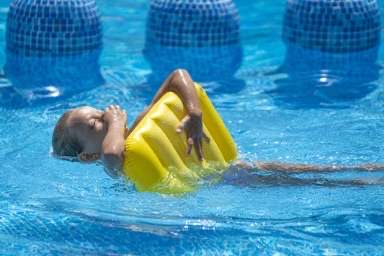What do LeBron James, Ryan Giggs, the All Blacks Rugby Team and the whole of Team GB have in common (apart from the obvious)? All of them have used holistic therapies to get into the zone or heal from an injury. So, what exactly are holistic therapies? Sobriety Companion and Coach, Bunmi Aboaba, explains…
Reiki, massage, energy medicine, rainbow therapy, yoga, crystal therapy, acupuncture; they’re all holistic therapies, each with their own powerful benefits. You might not notice, but holistic therapies are used by every sports coach or sports therapist out there. The chances are, that the muscle rub the sports therapist uses is scented… and that’s aromatherapy for a start!
Acupuncture is huge in UK football. Notts County FC invited people from the Acupuncture Association of Chartered Physiotherapists (AACP) to film in their treatment room. Notts County Player-Manager Kevin Nolan praised acupuncture as a complementary therapy with physiotherapy: “Acupuncture has become a part of everyday modern football. You see it used often, there wouldn’t be a day go by that I wouldn’t see the needles come out. It’s something, if we’re going to be moving forward as a medical department, that we need to study and know about and make sure we don’t get left behind and we can give our athletes the best possible rehab.”
But what about holistic therapies for addiction?
Believe it or not, even the golden boy athletes sometimes go through addiction battles. Take former Arsenal and England midfielder, Paul Merson, for example. He struggled with alcoholism, drug addiction and gambling addictions, but after a lot of focus, various therapies and support, he is now one of the best pundits out there.
Then there’s former Villa player, Gary Charles, who’s a recovering alcoholic working with Priority Health, dedicated to making sure younger players don’t fall into the addiction trap.
Addiction in itself usually comes with underlying stress, anxiety, panic attacks, lack of self-confidence and poor self-image, among other things. And that is way more likely if you’re pushing yourself to be the best, strongest and fastest.
And guess what? Holistic therapies have the ability to home in on both addiction problems and all the side effects that come with them.
Interest in yoga, as a prime example, has soared over the last decade alone. Latest findings show there are over 10,000 yoga teachers registered with the British Wheel of Yoga (the official body appointed by Sports England). A big chunk of these are sports therapists who use yoga and other treatments like reiki, massage, energy medicine and acupuncture as part of their recovery routines.
There are even loads of studies on how yoga has the potential to be one of the best complementary holistic therapies for drug and alcohol addiction.
A study in Complementary Therapies in Medicine reported that “skills, insights, and self-awareness learned through yoga and mindfulness practice can target multiple psychological, neural, physiological, and behavioural processes implicated in addiction and relapse [they could be used as] promising complementary therapies for treating and preventing addictive behaviours.”
It’s no wonder more athletes are becoming aware of the benefits of holistic therapies – they’re being referred to mindfulness sessions by their GPs and sports therapists.
Yoga and mindfulness techniques help kick down anxiety by ‘living in the moment’ and just being more chilled out in general. And that is something which is very important to a lot of people with various addictions – taking each day as it comes.
And not to mention yoga promotes muscle growth and definition.
Acupuncture has also earned its place as a holistic therapy in sports. But it has yet to make a bigger impact in the UK.
Ian Appleyard, Course Director of Chinese Medicine: Acupuncture at London South Bank University, recently discussed acupuncture as a potential complementary therapy on BBC World Radio.
He said: “Despite its growing popularity in the Western world, acupuncture is yet to become fully integrated in the UK health system. Some doctors, although fully trained in Western medicine, start to delve into a variety of alternative medicines. Some chose to undertake weekend courses in acupuncture and use it in a rather mechanical way, whereas others will take the time to do three-year programmes. There is much greater acceptance of acupuncture now than when I first became interested in acupuncture 20 years ago; this is primarily based on positive patient reports to local GPs. This isn’t much of a surprise considering there was reported evidence that acupuncture may indeed act as a supporting treatment for depression and anxiety.”
Medical Acupuncture published the study, which announced “With respect to six reviewed studies, there is high-level evidence to support the use of acupuncture for treating major depressive disorder in pregnancy.”
The Addiction Recovery Guide also supported this with a useful section on the scientific studies that support acupuncture for addiction. Men are turning to acupuncture for cocaine addiction, smoking cessation and other substance abuse issues.
Bunmi Aboaba a Sobriety Companion and Coach, and founder of The Sober Advantage, helps people battling a variety of addictions to get control of their lives and beat their addiction – for good. Bunmi uses a variety of techniques to help her clients, all of which she has used herself to help her gain her sobriety and remain sober for 10 years. Get in touch at thesoberadvantage.com







